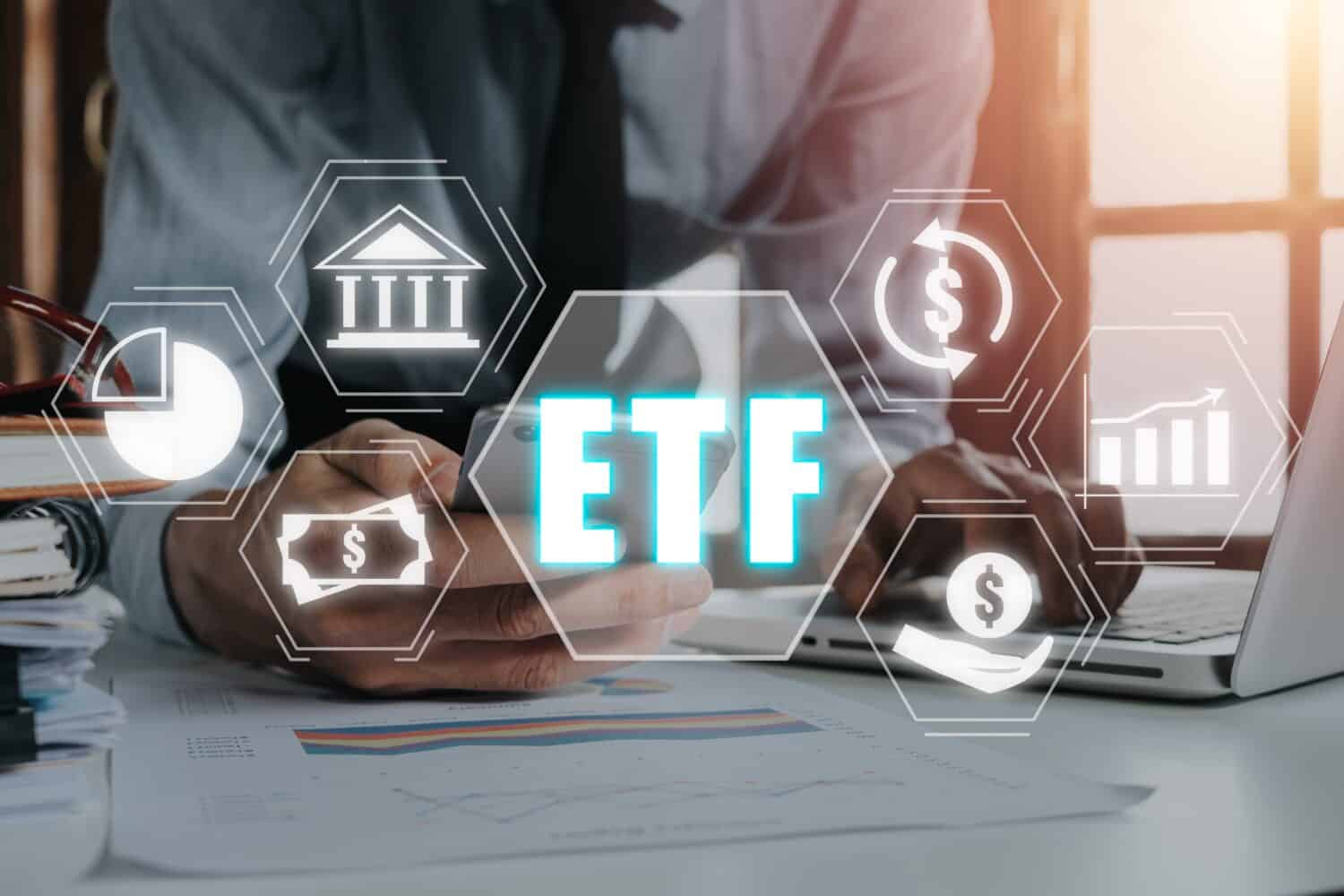
The surging popularity of Bitcoin has captured the attention of investors worldwide. As Bitcoin’s price fluctuates, many seek to gain exposure to this investment without directly owning and storing it.
Luckily, that’s where Bitcoin ETFs come in. These financial instruments allow you to invest in Bitcoin with a traditional brokerage account, offering a more convenient alternative to actually buying individual coins.
There are two main leading Bitcoin ETFs: iShares Bitcoin ETF (IBIT) and Fidelity Wise Origin Bitcoin Fund (BATS: FBTC). While both of these track Bitcoin, they have many differences.
While FBTC offers a tempting low-cost entry point, IBIT remains preferable for most investors due to its established track record, reputable custodian, and balanced risk profile.
We’ll unpack this argument throughout the article, but first, let’s get acquainted with each ETF.
What is IBIT?

IBIT is an ETF designed to track Bitcoin’s performance. Unlike some other ETFs, it does not invest in Bitcoin futures contracts. Instead, IBIT uses a physically backed security. That means that IBIT holds actual Bitcoin reserves in proportion to the number of ETF shares.
When you purchase a share of IBIT, you purchase a certain amount of Bitcoin.
IBIT partners with a reputable custodian to safeguard these Bitcoin reserves. This custodian provides secure storage and manages the Bitcoin assets. Therefore, IBIT provides a potentially less risky way to gain exposure to Bitcoin, as you don’t have to worry about storing the Bitcoin themselves.
What is FBTC?

FBTC also tracks the price of Bitcoin, but unlike other bitcoin ETF providers they self-custody their underlying Bitcoin. Unlike IBIT, which relies on a third-party custodian to hold Bitcoins, FBTC uses its own infrastructure for secure storage and management.
This option eliminates the need for a third-party custodian, streamlines the process, and reduces fees.
Fidelity’s decision to self-custody Bitcoin for FBTC is a noteworthy differentiator in the ETF Space as it relies on Fidelity’s own institutional-grade security measures versus a third party.
When you purchase ETF stock from Fidelity, you trust them to manage and store the Bitcoin well.
IBIT vs. FBTC: What Fund is Right for You?

Fees
When choosing between IBIT and FBTC, fees should be at the top of your mind. Both IBIT and FBTC boast competitive expense ratios compared to traditional investment options. However, there is a slight difference.
IBIT charges an expense ratio of 0.25%, while FBTC has a temporary 0% fee structure. The temporary nature of FBTC’s 0% fees must be emphasized. They will have fees in the future when this introductory offer expires.
When FBTC does have a fee, it’s expected to be similar to IBIT’s expense ratio of 0.25%
Risks
Both of these ETFs seek to mirror Bitcoin prices. If you’re reading this article, you’ve probably already done some research on Bitcoin and its expected pricing. (If you haven’t, we recommend at least skimming our Bitcoin price prediction article.)
Bitcoin is pretty risky and much more volatile than the stock market. However, neither IBIT nor FBTC are much riskier (or less risky) than Bitcoin. It’s important to remember that you are still investing in Bitcoin when you purchase these ETFs.
Since IBIT and FBTC track Bitcoin, their historical price movements are similar. FBTC may be more volatile in the short term, but this is expected to even out. Over time, as FBTC establishes a longer track record, its volatility is expected to be very similar to IBIT’s.
Historical Performance
Since both IBIT and FBTC aim to track the price of Bitcoin, their historical performance is exceptionally similar. They’re essentially offering exposure to the same underlying asset, which makes complete sense.
However, you should also consider the launch date of each ETF. IBIT has been operational for a long time and has an extensive track record, which you can analyze. FBTC is very new and naturally has a much shorter history.
While both ETFs should reflect the price movements of Bitcoin, FBTC is simply too new for us to see if this is truly the case. Many people are sticking with IBIT due to its longer track record, and this isn’t necessarily a bad play.
Liquidity
Liquidity refers to how easy it is to buy or sell shares of an ETF without significantly impacting the price. Generally, a higher trade value indicates better liquidity. Since IBIT has been around for a long time, it has a much larger and more active pool of investors.
(This is a large reason FBTC is offering a 0% fee for a short time. They’re trying to attract more investors to improve liquidity!)
FBTC currently has much lower liquidity; only time will tell if that will improve. You’ll be able to enter and exit positions much faster with IBIT with much less impact on the price! While FBTC’s trading volume might increase over time, IBIT is the more liquid option.
Should You Buy IBIT or FBTC?

Both IBIT and FBTC are effective ways to gain exposure to Bitcoin without actually investing in Bitcoin. However, which one is right for you depends largely on your risk tolerance.
IBIT has an established track record, a reputable custodian, and a potentially lower risk profile. This combination makes it ideal for investors who just want to try what works. IBIT has already been “proven” and is trusted by many.
However, IBIT does have an expense ratio, while FBTC currently does not. That’s only temporary, though, while FBTC gets off its feet.
FBTC’s newer status also translates to a shorter track record, which makes it a risky investment. If you’re comfortable with a new ETF, FBTC may be a good option. You’ll also save some money in the short term.
It’s Your Money, Your Future—Own It (sponsor)
Are you ahead, or behind on retirement? For families with more than $500,000 saved for retirement, finding a financial advisor who puts your interest first can be the difference, and today it’s easier than ever. SmartAsset’s free tool matches you with up to three fiduciary financial advisors who serve your area in minutes. Each advisor has been carefully vetted and must act in your best interests. Start your search now.
If you’ve saved and built a substantial nest egg for you and your family, don’t delay; get started right here and help your retirement dreams become a retirement reality.
Thank you for reading! Have some feedback for us?
Contact the 24/7 Wall St. editorial team.





